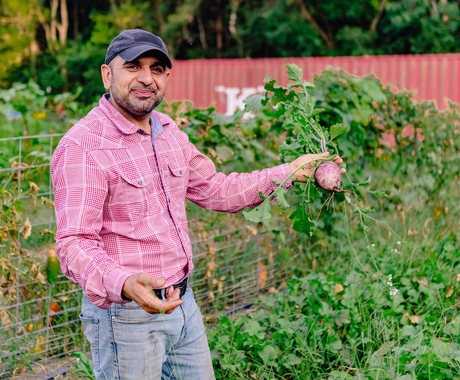By John Crabtree, former staff member
On May 10, 2016, Sen. Chuck Grassley (R-Iowa), reintroduced legislation to prohibit ownership of livestock by meatpacking companies. S. 2911 would amend the Packers and Stockyards Act of 1921 to make it unlawful for a packer to own, feed, or control livestock intended for slaughter.
“An effective and efficient marketplace is one where packers that control all harvest capacity of the industry do not also own a majority of the animals to be processed,” Sen. Grassley said. “The fact of the matter is that the market continues to become less competitive. It’s time to see if ending packer ownership of livestock will reverse that trend.”
The National Farmers Union (NFU) responded favorably to the reintroduction of Sen. Grassley’s legislation. According to an NFU policy statement, livestock ownership among a few multinational firms restricts competition, puts farmers and ranchers on an uneven playing field, and increases the chances of market price manipulation. Both the National Farmers Union and the Center for Rural Affairs have long supported passage of legislation to ban packer ownership of livestock and other related livestock market reforms.
While recent consolidation in the meatpacking and processing sector – Tyson Foods and Hillshire Brands as well as JBS USA’s purchase of Cargill’s pork business – may have played a role in Sen. Grassley’s decision to reintroduce the packer ownership of livestock ban, it is also important to remember that Sen. Grassley has been a champion of this livestock market reform since the late 1990s. In fact, we worked with Sen. Grassley and Nebraska’s erstwhile Sen. Bob Kerrey in 1999 on the development of the first version of legislation banning packer ownership of livestock that they first introduced that year.
Sen. Grassley, who is Chairman of the Senate Judiciary Committee and also a member of the Senate Agriculture Committee, referenced several recent mergers in statements regarding the introduction of S. 2911, specifically including the 2013 purchase of the largest pork producer and processor in the U.S. – Smithfield – by the Chinese firm Shuanghui International.
S. 2911 exempts farmer cooperatives where cooperative members own, feed, or control the livestock and meat packing companies that are too small to be covered by the USDA’s mandatory price reporting program.
As I’ve said many times before, response from the meatpacking industry to any reform legislation or even any discussion of reforming livestock markets is always virtually the same. They like to have all the control over the marketplace; they don’t care about how farmers and ranchers are treated; and they don’t want anyone holding them accountable or forcing them to operate in a fair, equitable, competitive marketplace.
North American Meat Institute President and CEO Barry Carpenter cited outdated studies in his attack against Sen. Grassley’s legislation to ban packer ownership of livestock, according to Bill Bullard, CEO of the ranchers’ organization R-CALF USA. “Mr. Carpenter’s claim that packers must own and feed their own cattle to maintain an effective and efficient marketplace is baseless, deceptive and self-serving,” said Bullard.
The USDA recently released data showing that the volume of cattle purchased by packers in the price-discovering cash market fell to only 21.3% nationally and 2.6% in the Texas, Oklahoma and New Mexico fed cattle market by 2015. Conversely, the volume of cattle procured by packer-owned and other non-cash arrangements skyrocketed by 2015, jumping to 78.7% nationally and 97.4% in the Southwest regional market.
“Our cattle markets are seriously broken, and Sen. Grassley’s long-needed legislation to ban the largest packers from owning and feeding their own cattle will provide immediate relief from the abusive control that packers are exerting in our markets,” Bullard concluded.
The packers and their sycophants at the National Pork Producers Council can whine and complain all they want. But competitive markets are the foundation of America’s economy. Family farmers and ranchers asking for a level playing field where farmers and ranchers own the livestock, not the packers themselves, is a request that is not only eminently reasonable, but long overdue.





